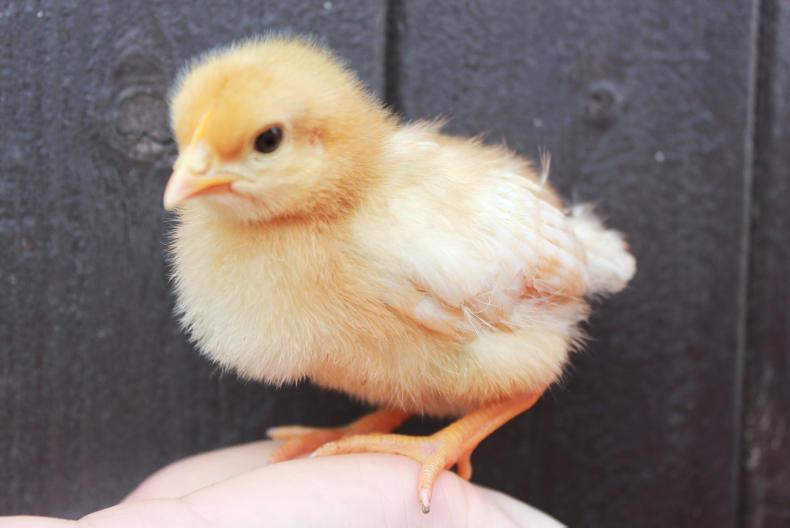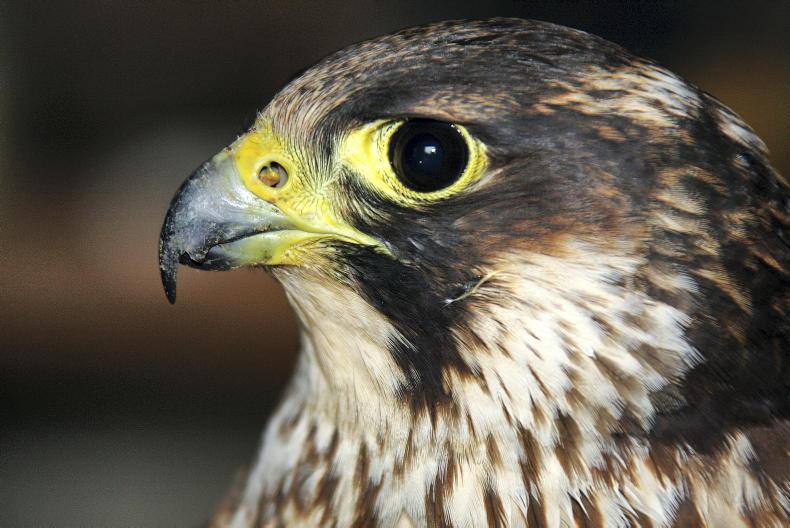Another crop of day-old chicks arrived recently, and they are now almost three weeks old.
I usually start them off in two houses, then thin them across to the other pair of houses when the birds are anywhere between five and eight weeks of age.
Despite having to pay a squad of handlers to perform this task, the savings in gas and electricity outweigh the wage bill. There are other advantages too – I am able to turn around two houses in a couple of weeks (to be ready for the new intake), then the remaining workload can be conducted at a more leisurely pace.
However, this crop is currently occupying three houses, because a mixture of standard and organic birds are being reared. This arrangement meant a few weeks of intense pressure that had to be fitted in with our summer holiday, and probably stopped me from relaxing while away.
Rules
I enjoy having a good moan about the constantly changing rules and regulations surrounding pullet rearing, and this next year will be no exception. The most recent update concerns perch space, which has suddenly increased from 1.75cm/head, to a whopping 5cm.
Admittedly, there is a generous timeframe allowance to have extra perches constructed and fitted, but it didn’t stop me from whingeing my head off to all concerned.
I wonder will there ever be a new rule which makes life a bit easier for the person rearing, instead of an ever-increasing amount of recording, washing, vaccinating, and even dreaming up new environmental enhancements (ie toys) to keep the birds entertained
Now that I’ve blown off excess steam about the whole thing, I can see that it’s another positive step for the welfare of the birds and will encourage them (hopefully) to adapt to the nesting boxes when they settle into the laying farms.
From an entirely selfish point of view, I wonder will there ever be a new rule which makes life a bit easier for the person rearing, instead of an ever-increasing amount of recording, washing, vaccinating, and even dreaming up new environmental enhancements (ie toys) to keep the birds entertained. Actually, that last one is quite good fun and really can exercise your imagination.
Understand
Without trying to sound like an ageing schoolmaster, most people do not understand (farmers included) the difference between pullet rearing and chickens reared for meat, and I am constantly explaining the difference.
The easiest analogy is to compare poultry with dairy and beef cattle. The birds that are being reared for commercial egg production are similar to a high-yielding Holstein cow. They are a strong-framed creature, designed for one purpose only.
Do not even consider them as a dual-purpose proposition, because you couldn’t find enough meat on them to make a chicken nugget. However, they are unbelievably efficient at churning out huge numbers of eggs and can comfortably produce 350 eggs in a 420-day laying period.
There is also an automatic assumption that all breeds of commercial poultry grow at the same speed as broilers. To put it in context, if we assume that day-olds are all roughly the same weight, then my target weight at 14 weeks of age is similar to a broiler at four weeks. It was once explained to me that a laying hen’s essential requirements are strong legs and good ovaries, and the development of those cannot be forced or rushed.
Organic
Another interesting reaction concerns the word ‘organic’. If I tell a fellow farmer that I’m rearing a crop of organic birds, they will inevitably roll their eyes and make a comment along the lines of “what a load of manure” (or similar words).
By contrast, when I’m among non-farming friends, the standard reaction is “how lovely”. This never ceases to amuse me, and I get enormous satisfaction from milking the situation for all it’s worth.
It’s easy to build on this utopian image of an organic flock, starting with the lack of genetically modified feed sources, lower stocking densities, before moving on to paint a picture of hens ambling contentedly through picturesque woodland. I wouldn’t say I was being untruthful; just doing my bit to promote the sale of politically correct eggs.
Read more
Farmer Writes: returning to the green grass of home
Farmer Writes: break-out in the summer drought
Another crop of day-old chicks arrived recently, and they are now almost three weeks old.
I usually start them off in two houses, then thin them across to the other pair of houses when the birds are anywhere between five and eight weeks of age.
Despite having to pay a squad of handlers to perform this task, the savings in gas and electricity outweigh the wage bill. There are other advantages too – I am able to turn around two houses in a couple of weeks (to be ready for the new intake), then the remaining workload can be conducted at a more leisurely pace.
However, this crop is currently occupying three houses, because a mixture of standard and organic birds are being reared. This arrangement meant a few weeks of intense pressure that had to be fitted in with our summer holiday, and probably stopped me from relaxing while away.
Rules
I enjoy having a good moan about the constantly changing rules and regulations surrounding pullet rearing, and this next year will be no exception. The most recent update concerns perch space, which has suddenly increased from 1.75cm/head, to a whopping 5cm.
Admittedly, there is a generous timeframe allowance to have extra perches constructed and fitted, but it didn’t stop me from whingeing my head off to all concerned.
I wonder will there ever be a new rule which makes life a bit easier for the person rearing, instead of an ever-increasing amount of recording, washing, vaccinating, and even dreaming up new environmental enhancements (ie toys) to keep the birds entertained
Now that I’ve blown off excess steam about the whole thing, I can see that it’s another positive step for the welfare of the birds and will encourage them (hopefully) to adapt to the nesting boxes when they settle into the laying farms.
From an entirely selfish point of view, I wonder will there ever be a new rule which makes life a bit easier for the person rearing, instead of an ever-increasing amount of recording, washing, vaccinating, and even dreaming up new environmental enhancements (ie toys) to keep the birds entertained. Actually, that last one is quite good fun and really can exercise your imagination.
Understand
Without trying to sound like an ageing schoolmaster, most people do not understand (farmers included) the difference between pullet rearing and chickens reared for meat, and I am constantly explaining the difference.
The easiest analogy is to compare poultry with dairy and beef cattle. The birds that are being reared for commercial egg production are similar to a high-yielding Holstein cow. They are a strong-framed creature, designed for one purpose only.
Do not even consider them as a dual-purpose proposition, because you couldn’t find enough meat on them to make a chicken nugget. However, they are unbelievably efficient at churning out huge numbers of eggs and can comfortably produce 350 eggs in a 420-day laying period.
There is also an automatic assumption that all breeds of commercial poultry grow at the same speed as broilers. To put it in context, if we assume that day-olds are all roughly the same weight, then my target weight at 14 weeks of age is similar to a broiler at four weeks. It was once explained to me that a laying hen’s essential requirements are strong legs and good ovaries, and the development of those cannot be forced or rushed.
Organic
Another interesting reaction concerns the word ‘organic’. If I tell a fellow farmer that I’m rearing a crop of organic birds, they will inevitably roll their eyes and make a comment along the lines of “what a load of manure” (or similar words).
By contrast, when I’m among non-farming friends, the standard reaction is “how lovely”. This never ceases to amuse me, and I get enormous satisfaction from milking the situation for all it’s worth.
It’s easy to build on this utopian image of an organic flock, starting with the lack of genetically modified feed sources, lower stocking densities, before moving on to paint a picture of hens ambling contentedly through picturesque woodland. I wouldn’t say I was being untruthful; just doing my bit to promote the sale of politically correct eggs.
Read more
Farmer Writes: returning to the green grass of home
Farmer Writes: break-out in the summer drought










SHARING OPTIONS